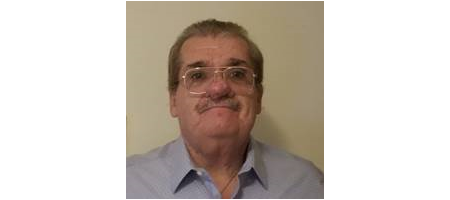By Tom Peyton
As I mentioned in a previous column, I receive daily inspirational quotes, and this one arrived not only from the site that sends them but forwarded as well from a high school classmate to me. They are both asking me to examine the quote and unravel its meaning. I will give it my best attempt.
Let me start with the second part of the quote and with a question: “How do I relate to the things that will not change? Almost fifteen months ago, my wife died, and my world changed forever. Our collective life ended, and I will never get it back. I can wish and hope and long for what was, but the reality is it won’t ever come back.
I am reminded of one of the disclaimers my friend Fred Colby uses at the start of his bereavement support group meetings: “Life will never be the same again.” It’s not meant to make the participants sad, cause them to cry, or become filled with anxiety. Neither is it designed to force or compel one to accept a harsh reality the past is over. I believe its purpose is to remind us, the bereaved; there is a new aspect to our lives called Grief that is a part of but not the whole of who we are as human beings.
Let me emphasize this point so that it is not misconstrued. Greif in the early days, weeks, and months is overwhelming. Let’s use the image of the waves that often capture how we feel. The metaphor creates the image of waves coming at us with a speed and force that completely wipes us out. We cannot manage them, nor can we stand up as they strike constantly. With time they seem to slow down, but it requires us to work through them and learn how to manage and accept them.
Yes, brother’s work on our part that involves change. As Mark Twain or Samuel Clemens wrote many years ago: “The only one who likes change is a baby with a wet diaper.” Change demands learning how to rethink, redo and re-purpose our lives. It requires we take steps that will help us find a new way to remember forever our past, cherish our beautiful memories and incorporate them into our new life as we move forward. There will, of course, be tears, the triggers that remind us of the past, but there will also be smiles and laughter conjoined with joyful remembrances of the love we shared with our special brides who, as Herb Knoll reminds us often: “Chose us.”
In 2017 Diana Krall, the esteemed Canadian Jazz Musician, released her album “Turn Up the Quiet.” The album was a tribute to the many lost mentors and loved ones who had influenced her life. In an interview after its release, Krall said the album was “a reflection of how she was learning to deal with grief.” Initially, it was overwhelming and unbearable. She felt as though she was in a cave and will never find an escape route. With time she discovers and realizes that if you endure grief if you let it take its course, if you learn how to accept it rather than denying it, you can find joy. She says it’s about finding beauty in sad things.
In her book “The Anatomy of Grief,” Dr. Dorothy P Holinger, renowned Harvard School of Medicine professor, talks about Alchemy – the medieval forerunner of chemistry. Alchemists believed they could convert basic metals into gold. Proven over and over, it is impossible to do. Holinger draws a comparison to grief. The bereaved often see suffering like lead: dark and heavy. If only like the alchemist, we could turn it into gold. Impossible? Maybe not. “Grief does change the brain, hurt the heart and make the body suffer. Yet it can if you work through it and allow it follow its dynamic path with ebbs and flows, tears and laughter and accept it as part of your life it can change into joy or possibly gold”.
I return to the first part of the quote: Healing occurs when we change the way we see our reality- The death of our loved one is that “thing” that will never change. It is not a curse or a life sentence. It’s not imprisonment into a world of pain and suffering. It’s an opportunity to remember, recall, re-purpose and move forward by seeing the new way we relate to the things that will never change.
I stand with you, brothers, as we journey together.


Leave a comment